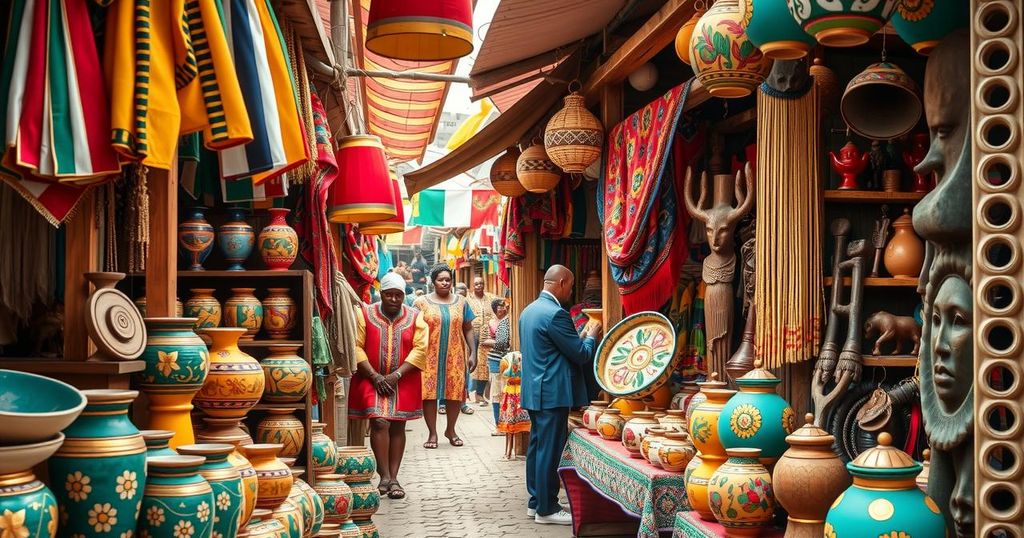The Ministry of Art, Culture, Tourism, and Creative Economy has partnered with MOFI to monetize Nigeria’s cultural assets. This MoU aims to unlock economic potential through the cataloging and valuation of tangible and intangible cultural resources, creating new income streams and investment opportunities for citizens, while promoting economic transformation.
The Ministry of Art, Culture, Tourism, and Creative Economy has forged a Memorandum of Understanding (MoU) with the Ministry of Finance Incorporated (MOFI) aimed at unlocking the economic potential of Nigeria’s cultural assets. This collaboration seeks to stimulate economic growth by monetizing both tangible and intangible assets associated with Nigeria’s rich cultural heritage.
During the signing ceremony at the Bank of Industry House, Dr. Armstrong Takang, CEO of MOFI, emphasized the importance of this agreement in revitalizing Nigeria’s creative sector. The MoU is designed to catalog, value, and securitize these cultural assets, creating new revenue streams and investment opportunities for citizens.
Dr. Takang highlighted that Nigeria stands at the verge of a significant economic transformation, where its cultural wealth can drive development. Notably, cultural assets hold substantial economic value, as illustrated by the 2018 sale of an Enwonwu painting for £1.2 million in London, whereas Nigeria’s National collection remains extensively undervalued
This partnership underscores the need to mobilize Nigeria’s creative resources. The MoU aims to transform various facets of the cultural sector, including arts, heritage sites, festivals, copyrights, and digital content, into economic drivers for the nation.
The partnership between the Ministry of Art, Culture, Tourism, and Creative Economy and MOFI signifies a major step towards monetizing Nigeria’s cultural assets. By cataloging and valuing these resources, the initiative not only aims to create new income sources but also to enhance investment opportunities. The effort is poised to awaken Nigeria’s creative potential and leverage its cultural wealth for economic growth.
Original Source: leadership.ng






